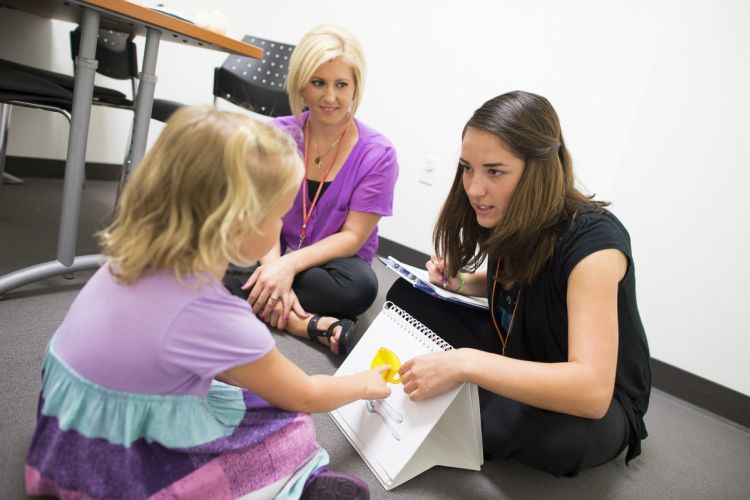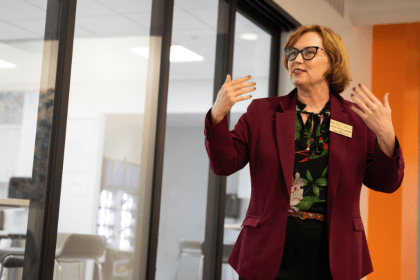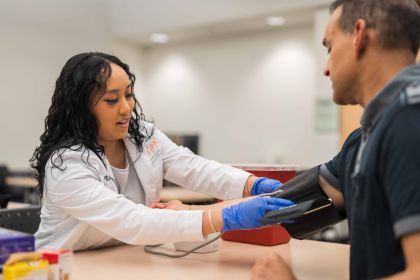Breadcrumb
Speech-Language Pathology graduates achieve 100% pass rate for 25th-consecutive year

Pacific's Department of Speech-Language Pathology offers a wide range of on-campus clinics and programs for children, adolescents, and adults.
University of the Pacific's Speech-Language Pathology Program graduates have achieved a 100% passing rate on the licensure exam for the 25th consecutive year, the longest record among all California private and public universities.
Nationally, Pacific is one of only three institutions with a perfect annual pass rate over the last two decades.
“I attribute our program's success (on the national Praxis exam) to our graduates who work tirelessly to learn their craft to support patients with communication disorders,” said Nicoleta Bugnariu, Dean of the School of Health Sciences. “Our faculty and staff are devoted to preparing thoughtful speech-language pathologists for lifelong success by providing an excellent student-centered, experiential learning environment.”
Pacific’s Speech-Language Pathology program is a full-time, cohort-based program with a required pattern of courses. There are two accelerated master’s degree programs for students who have an undergraduate degree in speech-language pathology (15-months) and for those who have a baccalaureate degree in another field (24-months).
Students must obtain a minimum off 400 hours of supervised clinical experience in the practice of speech-language pathology to supplement their academic preparation.
Graduates of the program attribute this accomplishment to the hands-on experience they gain during clinical hours. The Praxis exam tests the students’ knowledge of the evaluation, diagnosis, and treatment of various types of communication and swallowing disorders.
“Preparation (for the Praxis exam) starts at the beginning of the program,” said Pacific alumnus Nich Brock '12, who works as a speech-language pathologist for Valley View School District in Idaho. “As we are taking courses, we are given immediate opportunities to apply what we have learned through clinical experiences. The hands-on experience we gain through working with patients is priceless.”
The department head credits the students’ success to the accelerated pace of the program.
“All of this information is sort of consolidated in their minds in a relatively short time frame,” explained Derek Isetti, associate professor and new department chair. “It benefits them when they take the exam because all of the knowledge is fresh in their minds.”
Prior to taking the exam, students attend the California Speech-Language-Hearing Association annual convention where they participate in the Knowledge Bowl. The competition brings speech-language pathology graduate students throughout California together for a fun-filled contest consisting of test questions presented orally in a game-show format, with their peers and SLPs attending the convention cheering them on.
"While preparing, students are reviewing different types of questions that have been used in previous exams. They are not only studying so they can pass the exam, but also to do well at the Knowledge Bowl,” explained Jeannene Ward-Lonergan, professor and former department chair.
“Our students are passing at incredible rates because they are getting a top-notch education both academically and clinically,” she said.
To learn more about Pacific's Speech-Language Pathology Program, please visit the program's admission webpage or contact the admissions team.





